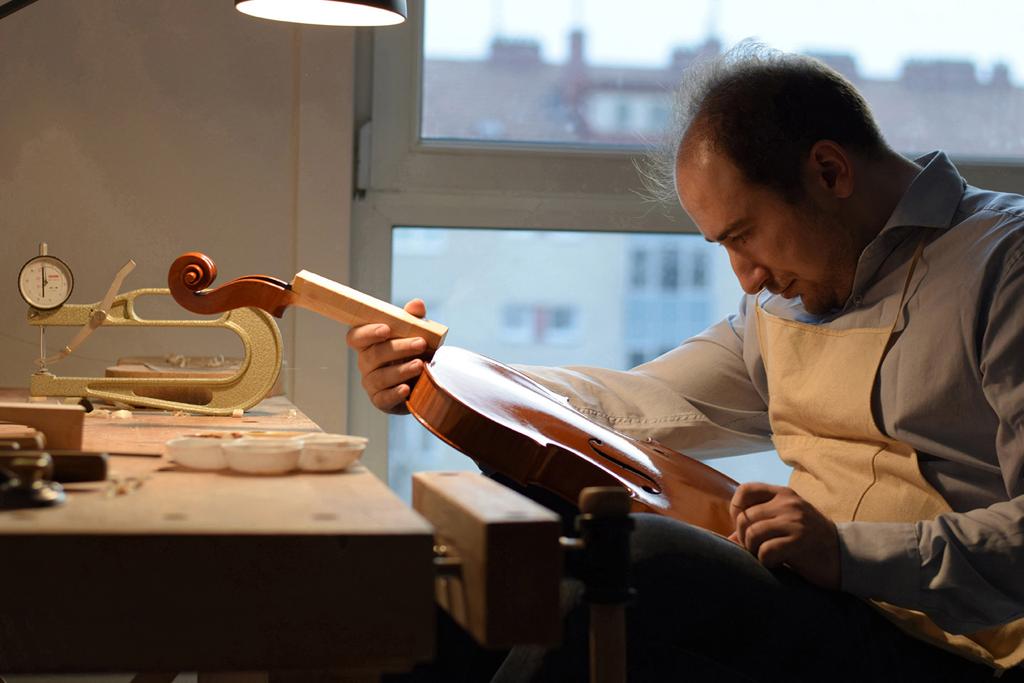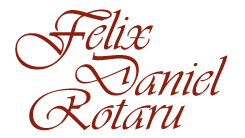Felix Daniel Rotaru
Violin Maker based in Vienna, Austria
Born in 1987, he followed initially his mother’s steps and studied the violin, obtaining his academic degree in classical violin performance. During the years of study at the music academy his interest in violinmaking developed, notably thanks to Markus Barbarossa, violinmaker and expert appraiser from Vienna, Austria and Roberto Regazzi, leading contemporary italian maker from Bologna. After obtaining his violin performance diploma he moved to Vienna and periodic collaborations with orchestras like Wiener Kammerorchester and the Baden Sinfonietta followed, while simultaneously sustaining a rich activity in making new instruments. Few years later he left Vienna for Cremona, Italy, where he enrolled at the Antonio Stradivari Institute of Violinmaking to complete his studies in the field. He studied construction, restoration and varnishing with several award-winning violinmakers like Alessandro Voltini, Massimo Ardoli, Alessandro di Matteo, Toshiuki Matsushita and Angelo Sperzaga. He returned to Vienna to continue being close to musicians and the rich cultural life of Austria’s capital.
Heaving both the perspectives of a violinist and violinmaker, as well as the experience of analyzing and briefly playing several violins of the highest merit including examples by Stradivari and Guarneri del Gesu among others, Felix Rotaru has gained a privileged, multi-layered experience. During the years, his focus was the sound of old italian masterpieces and the missing links between the old and new instruments. He considered and tested several available theories and possibilities of acoustical enhancement through traditional methods known as ”plate tuning”, with a careful attention to structural resistance in time. With the help of Roberto Regazzi and other makers that follow such principles, Felix Rotaru created and refined a complex acoustical tuning system, structurally generated by the natural proportionality of the instrument’s body and the wood’s density and elasticity. Using proportion and a self-generating scheme, all relatives are brought together into an equilibrium, a process that takes considerable time and precision work.
Instruments by Felix Rotaru are being played today in Great Britain, France, Germany, Switzerland, Denmark, Austria, Italy, Spain, Taiwan, Poland, Latvia, etc. Soloists, concert-masters, reputed teachers and distinguished professionals own and play Felix Rotaru’s instruments.
Felix Rotaru works alone in his workshop using only traditional tools and methods. His instruments are exclusively available through his shop. He prefers working on commission but tries to always have some finished instruments available to present to interested musicians. His output consists of 4-5 instruments a year. Recently the interest for baroque instruments of the violin family gained momentum and such projects are under way.

